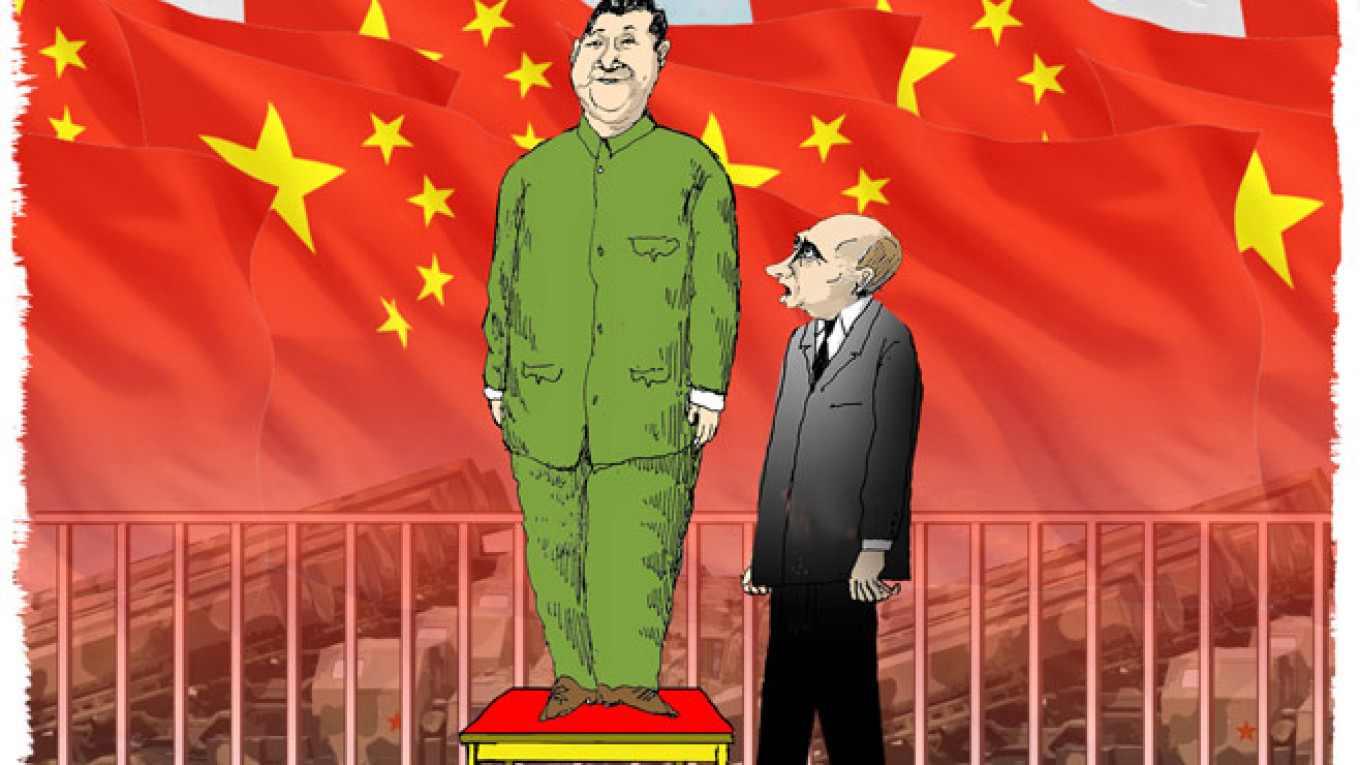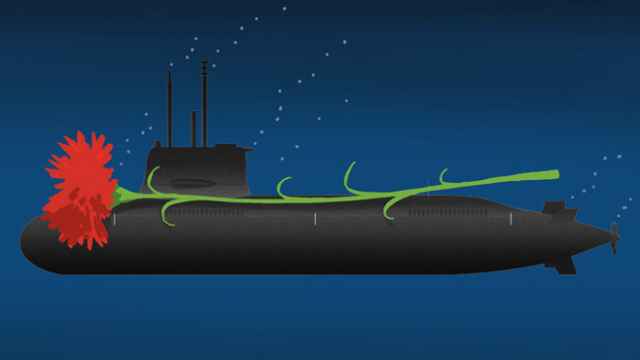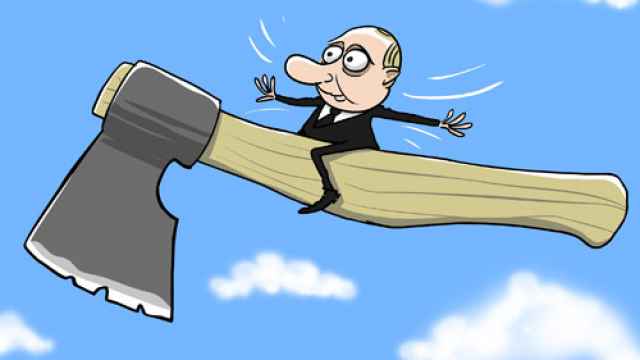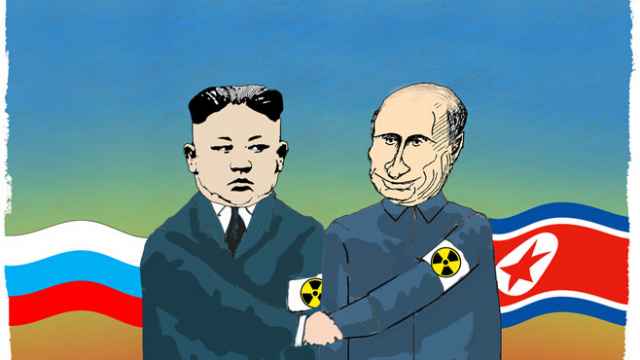For several years now, the authorities have used Russian history — and primarily the history of World War II — as a battleground for national identity and pride. Not a day goes by that they do not accuse a Western country of deliberately distorting history and belittling the heroism of Soviet soldiers who freed half the world from the grip of Nazi Germany. But what about countries in the East?
On Sept. 3, China staged a military parade of unprecedented scale on Tiananmen Square that included 12,000 soldiers of the People's Liberation Army and 500 pieces of military equipment — 80 percent of which organizers claimed were shown for the first time.
These included missiles capable of flying directly from space to destroy enemy aircraft carrier groups — presumably belonging to the U.S., the only country wielding such forces — along with new cruise missiles, medium-range intercontinental ballistic missiles and new air defense systems.
I have no doubt that military technology experts will spend the next several months discussing the equipment that was on display in Beijing. Although Chinese President Xi Jinping told those viewing the parade that China has no hegemonic designs — and had previously said the country would reduce its armed forces by 300,000 soldiers — the scale of the parade speaks for itself. As expected, the emerging Asian superpower has demonstrated its military might.
Naturally, to join China in celebrating its past victory in the War of Resistance with Japan and to commemorate the 70th anniversary of end of World War II, the leaders of those states that played a major role in defeating German fascists and Japanese militarism were on hand at the event. Namely, they came from the Czech Republic, Belarus, Kazakhstan, Kyrgyzstan, Tajikistan, Uzbekistan and also South Korea, Burma, Congo, Venezuela, Pakistan, Mongolia, Vietnam and Laos. And how could the ceremony be complete without the leaders of the tiny island republic of Vanuatu, whose renowned military also marched in the procession?
In fact, President Vladimir Putin was the only leader on hand from a country that had actually made a decisive contribution to the victory in World War II. Putin underscored this in his words to the Premier of the People's Republic of China State Council Li Keqiang on the eve of the massive parade. "We are demonstrating to our people and to the world that we have a common understanding of the outcome of World War II and that we oppose attempts to negate and distort history," he said.
Putin's words indicate that he has fully accepted the official Chinese version of events — namely, that Sept. 3 marks the 70th anniversary of the victory of the Chinese people in the War of Resistance with Japan and the end of World War II.
The problem is that the Chinese people did not vanquish the Japanese invaders. The Chinese people — who lost an unimaginable 35 million people in that conflict with Japan that began in 1937— were themselves liberated by American and British forces and of course the Soviet army that utterly defeated Japan's powerful Kwantung Army.
Despite its distortions of the truth elsewhere, Volume 11, page 26 of the classic Soviet-era text "The History of World War II" gives a fairly accurate assessment of this period.
"Assuming that the Allies would achieve victory over Japan without assistance from China," the text reads, "Chiang Kai-shek and his associates gathered their strength for the power struggle within China. The Communist Party of China led by Mao Zedong took essentially the same approach with regard to its plans and military strategy. As a result, neither the Chongqing government nor the authorities in the liberated regions had any serious plans for a broad offensive against Japanese forces." The text adds that the fighting was not intense in China during the final year of that war.
Of course, there is no shame in the fact that the Chinese were unable to single-handedly stop the aggressor. Most of the countries in the anti-Hitler coalition — from Czechoslovakia to France — were liberated by the forces of other states. It's just that now, as China asserts itself as a superpower, Beijing has decided to tweak the history books a bit.
It does more to promote national pride to celebrate victory over a past foe than to bow in gratitude to the liberators — especially if not all of those liberators are now allies. The Chinese made no effort to hide the fact that they followed Russia's example in staging their grandiose military parade, hoping to whip people into a patriotic frenzy, just as Moscow did, even during a time of economic hardship.
But was it wise for the Russian leader to take part in a game that essentially diminishes the role of the Soviet Union as the World War II liberator?
Alexander Golts is deputy editor of the online newspaper Yezhednevny Zhurnal.
A Message from The Moscow Times:
Dear readers,
We are facing unprecedented challenges. Russia's Prosecutor General's Office has designated The Moscow Times as an "undesirable" organization, criminalizing our work and putting our staff at risk of prosecution. This follows our earlier unjust labeling as a "foreign agent."
These actions are direct attempts to silence independent journalism in Russia. The authorities claim our work "discredits the decisions of the Russian leadership." We see things differently: we strive to provide accurate, unbiased reporting on Russia.
We, the journalists of The Moscow Times, refuse to be silenced. But to continue our work, we need your help.
Your support, no matter how small, makes a world of difference. If you can, please support us monthly starting from just $2. It's quick to set up, and every contribution makes a significant impact.
By supporting The Moscow Times, you're defending open, independent journalism in the face of repression. Thank you for standing with us.
Remind me later.







